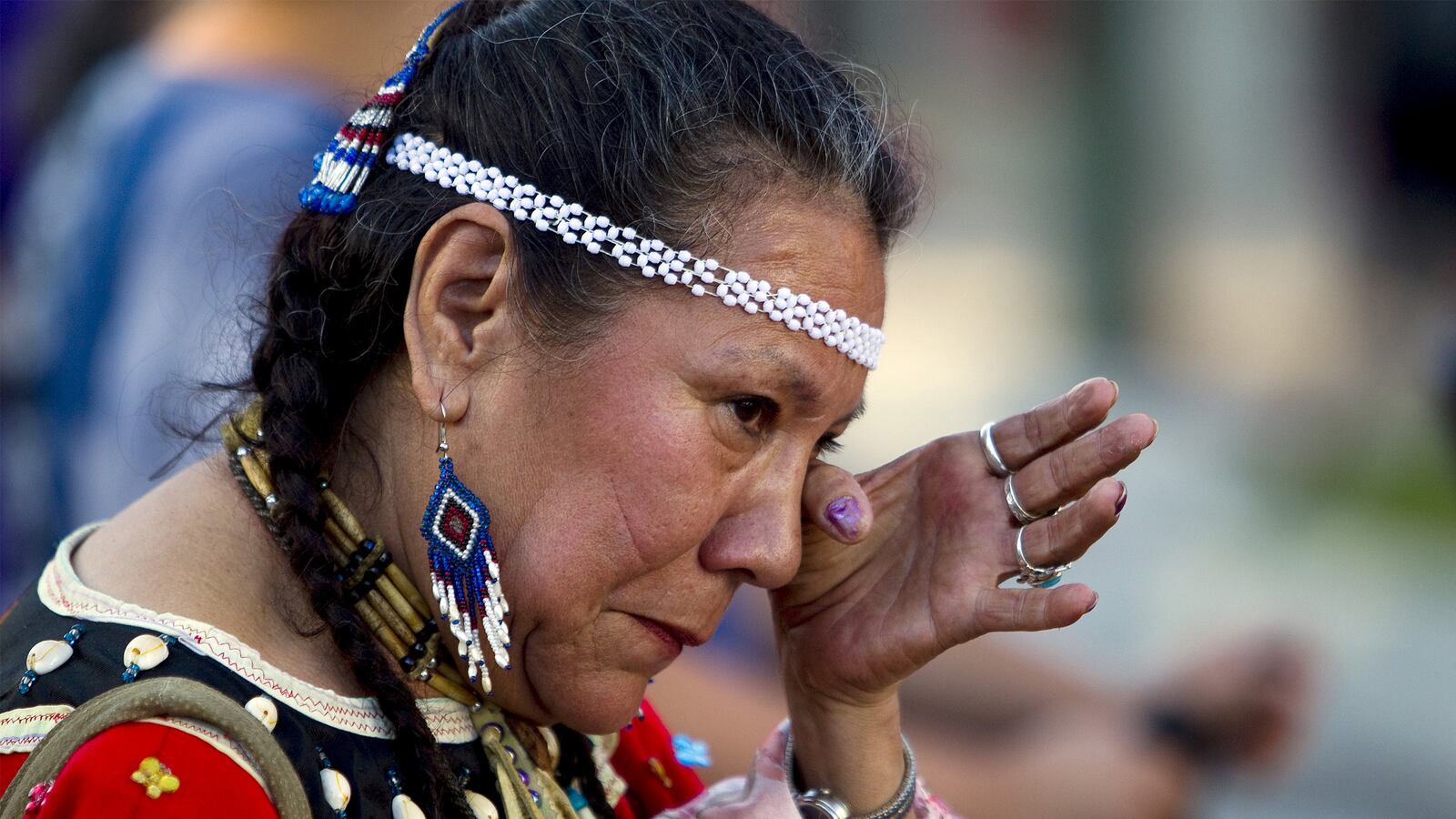Shauna Taylor spent her teenage years hustling on the streets of Winnipeg—struggling with an addiction to hard drugs, and alcohol from the time she was 13. One night, she took a call to a client’s home. When she arrived, he shoved a shotgun in her face and said, “You’re gonna die tonight, bitch.”
It was a stroke of dumb luck that the shotgun was not loaded, and Taylor was able to run away. When she showed up alive, but without money, her pimp—who routinely took most of her and the other girls’ earnings—beat her senseless.
Taylor managed to live another day—but one of her fellow sex workers did not.
“One girl who went out that night was murdered, and it made a hole in my heart,” she said.
“We weren’t friends—we were family. Blood is not always thicker than water, and a lot of them were murdered or missing.”
Now in her 40s, Taylor has managed to get clean, graduate from a local college, and start mentoring children and youth in her community. However, most indigenous women in her situation are not as lucky. According to the Royal Canadian Mounted Police (RCMP), 1,800 indigenous women in Canada have been murdered or gone missing since the 1980s. However, advocates—and survivors like Taylor—estimate that the actual number is closer to 4,000 due to a hesitancy to report cases to the police, and the large amount of homicide or missing-persons cases that never receive closure.
“There are a lot of cold cases out here in Winnipeg,” Taylor said.
Now, those cases may finally receive some political attention.
Last week marked the beginning of a series of roundtable discussions in preparation of a national inquiry into murdered and missing indigenous women in Canada. While advocates have demanded a national inquiry for years, former Prime Minister Stephen Harper repeatedly dismissed the issue, saying it should be dealt with within the jurisdiction of the native reservations—even though a large amount of the violence occurred in major Canadian cities with large indigenous populations, such as Winnipeg.
But Canada’s new prime minister, Justin Trudeau, has made the inquiry a “priority”—stating that in addition to the need for justice and answers for the victims and their families, ending violence against women and repairing the relationship with the indigenous population is crucial to the future of the country. More than 25 percent of Canadian youth are indigenous.
“I know renewing our relationship [with the indigenous community] is an ambitious goal, but I am equally certain it is one that we can—and will—achieve if we work together,” Trudeau recently said, as he announced the beginning of the national inquiry.
Advocates hope that the inquiry will re-open previously abandoned cases, and help families seek answers about their loved ones.
“There is a feeling among many that if women of other backgrounds were being murdered and going missing at the same rate, it would be treated as a national crisis,” Meghan Rhoad, a researcher at Human Rights Watch, told The Daily Beast. “The government’s decision to establish this inquiry is a sign that it finally is being treated as a national crisis.”
While 84 percent of homicide cases in Canada have been resolved, almost half of the cases involving indigenous women remain unsolved—leaving the families, friends, and loved ones of the missing and murdered with unanswered questions.
“Sometimes it seems like they’re forgotten, but they’re always in my heart,” Taylor said about the friends she has lost to unsolved murders, whom she calls sisters.
However, Taylor said she remains skeptical of the scope of the inquiry, and wished that there were more voices of survivors, like herself, included in the discussion.
“We need more safe houses for these children and these youth, we need more programs run by someone who lived through it—not necessarily someone with more education,” she said, commenting on what she sees when she mentors children in her own community.
“They won’t know what they’re feeling—and they’ll just prescribe drugs, and after drugs.”
Taylor also felt that—in order to succeed—the inquiry shouldn’t only address the issue of missing women, but also men, in addition to marginalized populations such as transgendered people and sex workers.
“We all matter—no one is more important than the other. We all have to come together in order for this to work.”






